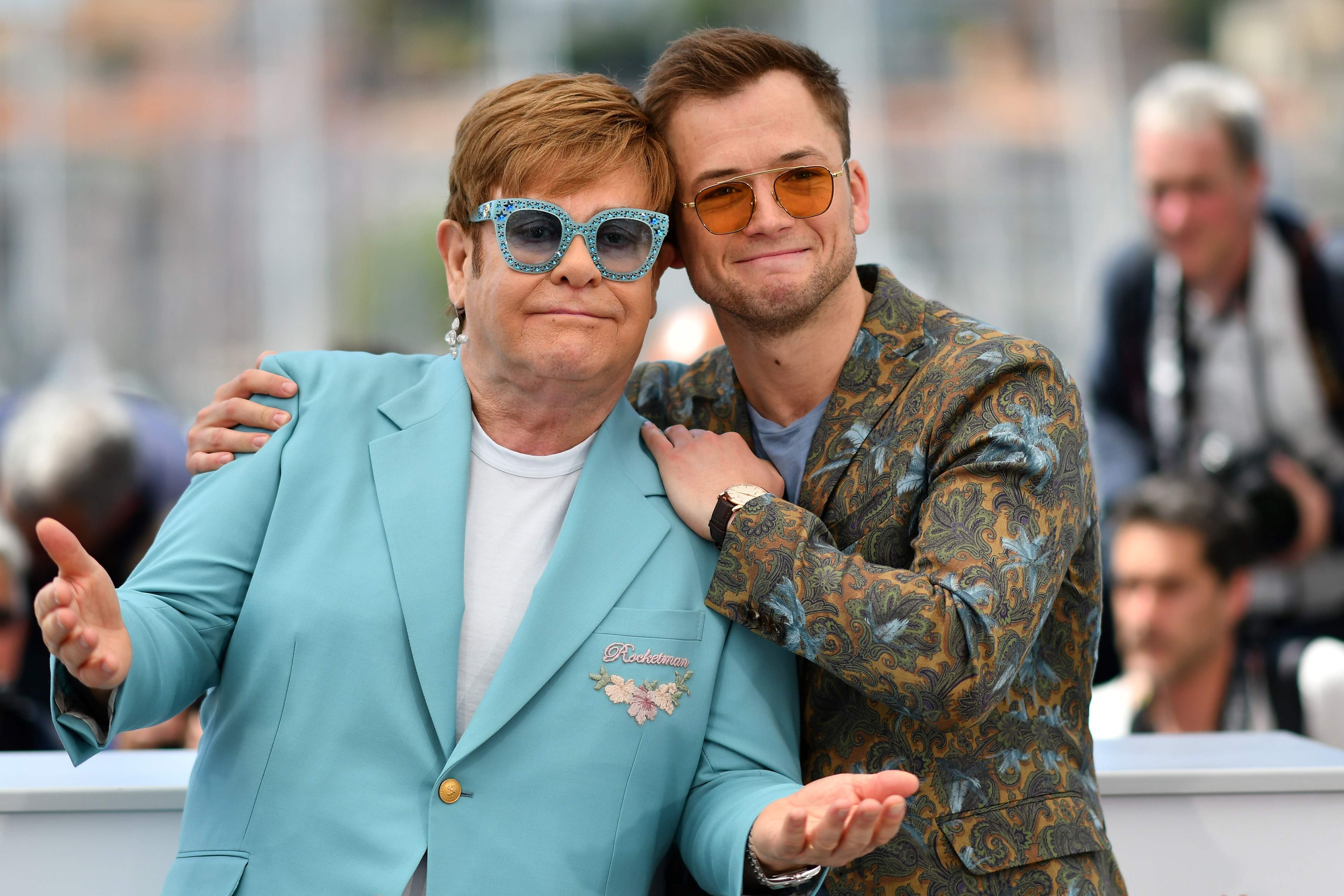
Hollywood has always been captivated by a good story, especially when it involves larger-than-life figures. But if the last decade was defined by capes and cosmic battles, the current cinematic zeitgeist has firmly swung towards the stage, the studio, and the tumultuous lives of musical icons. We’ve emerged from superhero fatigue only to find ourselves foot-tapping our way into a new obsession: the musical biopic. It’s a genre not just popular, but a box-office powerhouse and an awards-season darling, captivating audiences with a potent blend of nostalgia, drama, and unforgettable song. Nearly every pop star, past or present, seems to be clamouring for the biopic treatment.
This isn’t just a fleeting moment; it’s a full-blown phenomenon. Films like *Bohemian Rhapsody* and *Rocketman* didn’t just break records; they redefined what a musical biopic could achieve. They sparked a wave of interest that continues to swell with every new announcement, from Amy Winehouse’s *Back to Black* to the expansive, four-part Beatles saga. From rock gods to opera divas, everyone is getting the big-screen treatment, filling the void left by a superhero-saturated landscape. But what exactly fuels this insatiable appetite for true stories set to a killer soundtrack?
In the wake of this cultural shift, it’s worth a deeper dive into the genre’s mechanics and magic. We’ll pull back the curtain on why these films resonate so deeply. We’ll explore the winning formulas, the crucial creative decisions, and the lasting echoes they leave in pop culture. It’s more than just a trip down memory lane; it’s an examination of how these familiar, yet endlessly fascinating, stories continue to strike a chord with millions, providing comfort and connection in an ever-evolving entertainment landscape.
1. **The Box Office Goldmine and Critical Acclaim**The most immediate reason for the current surge in musical biopics is their staggering commercial and critical success. Hollywood operates on a simple principle: if it makes money, make more of it, preferably with awards-season glory. Musical biopics have been printing money, proving themselves a remarkably reliable formula for both box office triumph and prestigious recognition. The genre has morphed into a veritable box-office powerhouse, demonstrating significant demand for films celebrating iconic musicians, blending powerful narratives with beloved soundtracks.
Take *Bohemian Rhapsody* (2018). Chronicling Freddie Mercury and Queen, it soared, grossing over $900 million worldwide and becoming one of the most successful biopics ever. Its phenomenal success wasn’t merely financial; it earned Rami Malek a well-deserved Best Actor Oscar for his captivating portrayal, solidifying the genre’s appeal to audiences and critics alike. The bottom line from this epic alone was too large for studios to ignore.
Similarly, *Rocketman* (2019), Elton John’s fantastical biopic, garnered immense critical acclaim, making $195 million globally. Taron Egerton’s lauded performance, encompassing acting and vocal talents, proved the formula could be tweaked while maintaining appeal. These films validate the genre as a serious contender. Even *Bob Marley: One Love* (2024), despite mixed critical reception, drew solid box-office numbers, confirming the public’s appetite for these musical journeys.
Read more about: Your Ultimate Guide: The 15 Best Streaming Services for Iconic 1980s Movies
2. **The Enduring Hollywood Formula: Rise, Struggle, Redemption**Beyond the raw numbers, a significant factor in the genre’s unwavering popularity lies in its adherence to a storytelling blueprint audiences find deeply satisfying. Musical biopics often follow an archetypal formula: the meteoric rise to fame, followed by intense personal struggles—often fueled by success—and frequently culminating in a triumphant redemption arc. This narrative approach resonates profoundly, humanizing figures who often seem larger than life, allowing viewers to connect with their journey on an intrinsic, emotional level.
This structure taps into universal themes of ambition, adversity, and perseverance, presenting an accessible narrative arc that feels both grand and intimate. We see the artist as a struggling newcomer before breaking through. Then, inevitably, the darker side of fame emerges—addiction, strained relationships, mental health battles, or industry pressures. The genius of the formula is presenting these struggles as relatable human experiences, even for those who could never imagine selling out stadiums.
The combination of a compelling narrative with beloved music creates a powerful emotional experience. Films like *Walk the Line* (2005) about Johnny Cash, or *Ray* (2004) about Ray Charles, exemplify this formula. They meticulously chart the artist’s journey from humble beginnings to global stardom, navigating profound personal demons and ultimately finding redemption. Audiences aren’t just passively watching; they’re actively reliving a legend, experiencing the highs and lows of an artist’s journey in a way that feels dramatically engaging and deeply personal.
Read more about: Beyond the Stage: Why Musical Biopics Continue to Electrify the Box Office and Our Cultural Imagination
3. **The Art of Casting a Legend**The very essence of a musical biopic’s triumph often hinges significantly on one crucial element: finding the right actor to embody a legendary musician. This isn’t merely mimicry; it’s capturing the very essence, charisma, and often-hidden vulnerability of an icon. Hollywood and the Academy adore this challenge, especially come awards season, as it provides a major role allowing actors to fully grasp and embody the famous mannerisms, voices, and stage presence of a well-known singer. A transformative performance can elevate a film from good to unforgettable, becoming its undeniable selling point.
Rami Malek’s portrayal of Freddie Mercury in *Bohemian Rhapsody* is a textbook example. His performance was widely praised for replicating Mercury’s iconic stage presence and vocalizations, and for genuinely capturing the Queen frontman’s complex personality and profound internal struggles. This depth contributed immensely to the film’s massive success and earned him a coveted Best Actor Oscar. It proved that the right actor, with commitment, could breathe fresh life into a widely known figure, elevating the production.
Similarly, Taron Egerton’s immersive turn as Elton John in *Rocketman* was lauded for both his acting prowess and his impressive vocal performances. Egerton’s ability to convey John’s evolving persona made the narrative feel intensely authentic and deeply personal, despite the film’s fantastical elements. More recently, Austin Butler’s breathtaking transformation into Elvis Presley in *Elvis* (2022) garnered widespread critical acclaim and an Oscar nomination, demonstrating that the pursuit of that perfect, captivating performance remains a top priority.
Read more about: The A-List Tightrope: 8 Actors Who Show How Easily Your Big Break Can Slip Away
4. **Reigniting Legacies & Cultural Impact**Musical biopics possess a profound and often immediate impact on pop culture, serving as powerful engines for reigniting interest in an artist’s music and broader legacy. These films don’t merely tell a story; they frequently reintroduce iconic figures to entirely new generations, creating a fresh wave of fandom, discovery, and appreciation. It’s a beautifully symbiotic relationship where the film benefits enormously from the artist’s existing fame and catalog, and in turn, the artist’s discography and cultural footprint receive a vibrant, contemporary boost, ensuring their music endures.
Consider the cultural aftershocks following *Bohemian Rhapsody*. Queen’s music didn’t just see a resurgence; it experienced a massive, global renaissance in popularity, with streaming numbers soaring. Crucially, a younger demographic, previously unfamiliar with Queen’s full work, discovered their timeless anthems for the first time. This wasn’t isolated; *Rocketman* similarly introduced Elton John’s incredible catalog to new audiences while celebrating his indelible influence and groundbreaking impact on the music industry. The cinematic treatment acts as a compelling gateway, transforming casual listeners into devoted fans.
This ripple effect extends beyond mere listening habits. The films spark fervent conversations, generate debates, and cultivate renewed interest in the artist’s life and creative process. For artists, particularly those from past decades whose primary income shifted from music sales, a major film biopic is more than entertainment; it’s excellent business. It offers unparalleled exposure, amplified by a star actor’s performance, directly translating into increased sales of back catalogues and a powerful resurgence of relevance.
Read more about: The 13 Most Valuable Relics and Artifacts Currently Missing from US Museums
5. **Addressing Personal Struggles & Deeper Conversations**Beyond the dazzling glamour and chart-topping hits, musical biopics often serve as a vital platform for exploring the darker, more challenging aspects of an artist’s life, inspiring deeper societal conversations. Issues such as addiction, profound mental health struggles, immense pressures of fame, and complex personal relationships are common and frequently central themes. By shining an unblinking spotlight on these hidden elements, the films provide audiences with a more nuanced, empathetic, and human understanding of the profound challenges accompanying a life lived relentlessly in the public eye.
Films like *Walk the Line* about Johnny Cash, or *Ray* about Ray Charles, delve explicitly and unflinchingly into the musicians’ struggles with substance abuse, illustrating its devastating toll on their lives and careers. These aren’t merely plot points; they are integral to understanding the artists’ arduous journeys and the incredible resilience they demonstrated. *Rocketman*, for instance, fearlessly explored Elton John’s real battles with addiction and his journey to sobriety, using “I’m Still Standing” as a triumphant narrative cornerstone when he emerges from rehab.
These raw and honest depictions foster profound empathy and provide a crucial window into the often-unseen sacrifices and deep vulnerabilities beneath the polished public persona. They can validate the experiences of individuals grappling with similar issues, making the artists feel more relatable. This storytelling element adds significant weight and gravitas, transforming what could be mere biographical recounts into powerful, resonant explorations of the human condition under extraordinary circumstances, prompting essential discussions about well-being in the creative industry and beyond.
Read more about: Beyond the Reel: A Filmmaker’s Deep Dive into Why Some Cinematic Narratives Endure While Others Fade

6. **The Balancing Act of Truth vs. Entertainment**While musical biopics are undeniably popular, they are almost perpetually caught in a delicate, often contentious tension between historical accuracy and the inexorable demands of dramatic storytelling. This intricate balancing act is perhaps the most significant and recurring challenge filmmakers face, frequently leading to considerable criticism and fervent debate. The persistent question is: how much truth can legitimately be bent, omitted, or altered in the name of creating a more compelling, digestible, or conventionally entertaining narrative before it becomes a distortion, or worse, a disservice, to the real-life subject?
*Bohemian Rhapsody*, despite its immense box-office success, faced significant backlash for notable creative liberties. Critics accused the film of problematically downplaying Freddie Mercury’s uality and struggles with HIV/AIDS, as well as altering crucial timelines and exaggerating relationships for heightened dramatic effect. For example, Mercury’s relationship with manager Paul Prenter was controversially dramatized to emphasize betrayal, depicting him as a major antagonist—a familiar, often overused biopic trope. These narrative changes sparked intense debates about the inherent conflict between historical accuracy and the entertainment value studios prioritize.
Similarly, *Rocketman* embraced fantastical musical sequences, deliberately blurring the line between objective reality and vivid imagination. This stylistic choice, while visually stunning, often left viewers pondering what elements were truly factual and what had been inventively crafted for theatrical impact, such as Elton emerging from rehab into a musical number. Even highly praised films like *Straight Outta Compton* (2015) were accused of glossing over controversial aspects, such as Dr. Dre’s alleged treatment of women, in an effort to make the story more palatable. This ongoing debate highlights the genre’s inherent struggle: to honor the complex truth of a remarkable life while crafting a narrative that holds mass appeal.
Read more about: The Unofficial Playbook: 10 Head-Scratching Rules Celebrity Bodyguards Follow When Fans Get, Shall We Say, *Enthusiastic*
7. **The Deep Roots: A Look at the Biopic’s Storied Past**While the current surge of musical biopics feels like a fresh phenomenon, a closer look at Hollywood’s history reveals that the genre’s roots stretch back much further than most might assume. The idea of bringing a musician’s life to the silver screen isn’t a new invention born out of superhero fatigue; it’s a foundational element of cinematic storytelling, continually reinvented for each generation. This rich legacy helps explain why audiences still flock to these stories, finding a comfortable resonance in a familiar narrative tradition.
The official genesis often traces back to Alfred E. Green’s *The Jolson Story* in 1946, chronicling the life of Lithuanian-American singer-songwriter Al Jolson. This pioneering film wasn’t just a critical darling; it was a box-office hit, establishing a lucrative blueprint for musical biographies. Its success was further solidified by earning three Academy Awards for its soundtrack and score, unequivocally demonstrating that audiences and critics alike could be captivated by a musician’s journey, setting a powerful precedent for decades to come.
Fast forward to 1997, and *Selena*, starring a then-rising Jennifer Lopez, further underscored the commercial viability and cultural impact of the genre. The film, which garnered critical acclaim for its portrayal of Selena Quintanilla-Pérez’s life, grossed $11.6 million in its opening weekend and went on to win American Latino Media Arts Awards. *Selena*’s success proved that the demand wasn’t limited to a bygone era but could resonate powerfully with contemporary audiences, bridging cultural divides through the universal language of music and compelling personal struggle.
These early triumphs weren’t just isolated incidents; they laid crucial groundwork. They proved that a well-told story, anchored by captivating music and a charismatic lead, possessed an enduring appeal. Understanding these deep roots helps us appreciate that while the modern musical biopic might feel fresh, it’s actually a vibrant continuation of a time-honored cinematic tradition that consistently finds new ways to strike a chord with viewers.

8. **Streaming’s Stage: Expanding Reach and Niche Appeal**In an age where content is king and accessibility is paramount, the rise of streaming platforms has dramatically reshaped the landscape for musical biopics. Netflix, Hulu, and their ilk have not merely provided new distribution channels; they’ve become game-changers, enabling the genre to evolve beyond the confines of traditional theatrical releases and tap into a diverse, global audience that might never set foot in a cinema.
This shift is profound because it liberates biopics from the sole reliance on blockbuster box office numbers. Films about artists who might not command the same universal recognition as a Freddie Mercury or an Elton John can now find their dedicated fanbases and new admirers. Streaming services allow for a more nuanced approach, catering to niche audiences and fostering discovery, rather than solely chasing mass appeal, which often necessitated a heavily generalized narrative.
By democratizing access, streaming platforms have broadened the scope of musical stories that can be told. Instead of studios needing a guaranteed nine-figure return, projects about lesser-known but equally compelling artists can secure funding and reach millions. This expansion means we’re seeing a wider array of genres and timelines explored, from indie darlings to jazz legends, ensuring that the genre isn’t just about the biggest names but about the richness and diversity of musical history.
Ultimately, streaming has fostered a symbiotic relationship with the musical biopic, pushing the genre into an exciting new era. It’s given filmmakers more creative freedom, given audiences more choice, and perhaps most importantly, ensured that the legacies of countless artists, both mainstream and cult, have a dynamic new stage upon which to be celebrated and rediscovered, bypassing the traditional gatekeepers of cinema in the process.
9. **Beyond the Script: The Realities of Creative Control and Estate Support**While the commercial allure of a musical biopic is undeniable, the journey from concept to screen is rarely straightforward, often fraught with complex negotiations extending far beyond casting and scripting. A crucial, and often contentious, factor is the involvement and approval of the artist’s estate and family. Their support can lend immeasurable credibility and authenticity, yet it can also become a minefield of creative differences, shaping the narrative in ways that challenge filmmakers.
This dance between artistic vision and familial influence is complicated further by significant financial considerations. For artists, particularly those from past decades whose primary income has shifted from music sales, a major film biopic isn’t just about legacy; it’s a powerful business opportunity. Selling the rights to entire back catalogs has proven incredibly lucrative, as demonstrated by Universal Music Group’s reported $400 million acquisition of Bob Dylan’s catalog in 2020, and Stevie Nicks striking a similar deal for over $100 million. Exposure through a major film, amplified by a star actor, provides an unparalleled boost to relevance and sales.
The varying degrees of estate involvement often dictate the tone and focus of the final film. For instance, while Baz Luhrmann’s *Elvis* (2022) offered an energetic, visually stunning take on the King’s life, some critics felt certain aspects were embellished or downplayed to make the story more glamorous. In contrast, Sofia Coppola’s *Priscilla* (2023) deliberately shifted the perspective, offering a more nuanced and intimate portrayal from the viewpoint of Elvis’s wife, a choice Coppola stated was about “telling Priscilla’s side of the story,” resulting in a film with a distinct, personal lens.
Navigating these intricate relationships demands a delicate touch. Filmmakers must weigh the desire for historical accuracy and artistic license against the need for cooperation from those closest to the artist. The outcome of these negotiations can profoundly impact how a legend is remembered, demonstrating that a biopic is often as much a product of its behind-the-scenes dynamics as it is of its on-screen drama, perpetually balancing the need for credibility with the pursuit of a compelling, authorized narrative.
Read more about: Unearthing Cinematic Treasures: 11 Must-See Hidden Gem Movies You Absolutely Can’t Miss!

10. **The Familiar Beat: Identifying and Deconstructing Biopic Tropes**As the musical biopic genre has surged in popularity, its very success has inadvertently given rise to a recognizable, and at times, predictable narrative structure, replete with a host of recurring tropes. While audiences initially revel in the familiarity and comfort these elements provide, an overreliance on them can risk diluting the genre’s emotional impact and leading to critiques of formulaic storytelling, turning inspiring life stories into paint-by-numbers narratives.
One of the most persistent and, frankly, overused features is the “sinister artist manager” or music executive. This character, often depicted as a greedy, cigar-chomping antagonist with dollar signs in their eyes, is a staple, designed to highlight the artist’s vulnerability to exploitation. We saw this with Tom Hanks’s portrayal of Colonel Tom Parker in *Elvis*, and the dramatized depiction of Paul Prenter as a major antagonist in *Bohemian Rhapsody*, whose relationship with Freddie Mercury was controversially exaggerated to emphasize betrayal and fuel the film’s dramatic tension.
The “rise, struggle, redemption” formula, while inherently satisfying, has become so ubiquitous that audiences can often predict the narrative beats before they happen. This predictable trajectory, where an artist rises to fame, encounters setbacks (addiction, personal demons, industry pressures), and either overcomes them or tragically falls from grace, has prompted complaints. Many viewers of *Bohemian Rhapsody*, for instance, found the predictability, especially in how it handled Mercury’s relationships and struggles, to be a significant detractor, transforming what should be unique into something commonplace.
The pervasive nature of these clichés became so pronounced that the genre even spawned its own parody film. Jake Kasdan’s *Walk Hard: The Dewey Cox Story* (2007) brilliantly spoofs the “rags-to-microphone” stories of musicians like Johnny Cash and Ray Charles, meticulously dissecting and ridiculing every overused element, from the tragic childhood incident to the inevitable drug-fueled downfall and eventual triumphant comeback. This satirical send-up serves as a testament to just how recognizable, and therefore, how ripe for parody, these narrative conventions have become within the cultural consciousness.
While these tropes offer comfort and a familiar framework, the genre’s continued evolution hinges on its ability to transcend them. To avoid becoming merely “foot-tapping escapism,” filmmakers must increasingly strive for narrative originality and nuance, challenging the conventions that, for better or worse, have become synonymous with the musical biopic, ensuring that the genuine emotional impact isn’t lost in a sea of recycled dramatic beats.

11. **The Encore Awaits: A Glimpse into Tomorrow’s Musical Biopics**Far from peaking, the musical biopic phenomenon shows absolutely no signs of abating; in fact, it appears to be gearing up for its most ambitious and diverse chapter yet. Hollywood studios and major streamers are diligently flicking through their Spotify playlists, not just for inspiration, but for the next surefire hit, ensuring that the pipeline of captivating musical sagas remains robust. This ongoing wave promises to keep audiences engaged and nostalgic for years to come, further solidifying the genre’s enduring presence.
Among the most eagerly anticipated projects is *Back to Black*, the biopic about the incredibly talented and tragically short-lived Amy Winehouse, starring Marisa Abela. This film aims to explore the life and complexities of the Grammy-winning singer-songwriter, known for her distinctive voice and hits like ‘Rehab.’ Her story, filled with both artistic brilliance and profound personal struggles, presents fertile ground for a compelling and poignant cinematic exploration that will undoubtedly captivate a new generation of fans.
Then there’s the Michael Jackson biopic, a project poised to delve into the life and career of one of music history’s most influential, yet also most controversial, figures. Directed by Antoine Fuqua, this film aims to capture Jackson’s meteoric rise to fame, his groundbreaking influence on pop culture, and the myriad personal challenges he faced. Given the complexities of his public and private life, this biopic promises to be one of the most talked-about, attempting to navigate the nuances of his immense impact.
Perhaps the most ambitious undertaking in the genre’s history is the forthcoming four-part movie biopic of The Beatles, scheduled for a 2028 release. Directed by the visionary Sam Mendes, this unprecedented project will see each Beatle receive their own dedicated film, creating a multi-layered and expansive story of Beatlemania from four distinct perspectives. The casting alone is generating immense buzz, with Irish talents Barry Keoghan as Ringo Starr and Paul Mescal as Paul McCartney sparking new levels of fandom crossover and excitement.
Beyond these marquee names, the genre’s reach continues to expand. Jeremy Allen White is set to portray Bruce Springsteen in *Deliver Me From Nowhere*, while the highly awaited Ronnie Spector biopic, based on her autobiography *Be My Baby*, will star Zendaya in the lead role. Projects about Teddy Pendergrass and Janis Joplin are also in the works, ensuring a rich tapestry of musical legends from various genres will continue to receive the big-screen treatment. This relentless production schedule reaffirms Hollywood’s unwavering confidence in the musical biopic as a reliable formula for both commercial success and cultural resonance.

12. **Striking the Right Chord: The Future Evolution of Musical Biopics**As we’ve journeyed through the dynamic landscape of musical biopics, it’s clear that this genre has firmly entrenched itself as a cornerstone of modern cinema, offering a unique blend of pulsating music, compelling drama, and comforting nostalgia. From the astonishing box office triumphs to the profound cultural impact, these films offer a vibrant window into the lives of the artists who have shaped our collective soundtrack, continuously drawing in audiences across generations with their blend of the familiar and the fresh.
Yet, the road ahead for musical biopics is not without its intricate challenges. The persistent tension between historical authenticity and the compelling demands of dramatic storytelling remains a tightrope walk for filmmakers. As audiences grow increasingly sophisticated and discerning, the genre’s longevity and impact will hinge on its capacity to evolve, moving beyond predictable formulas and shallow portrayals to embrace a more nuanced, complex, and respectful approach to these iconic lives. It’s about finding that delicate balance where truth isn’t sacrificed for spectacle, and where creative liberties serve to deepen understanding rather than distort reality.
Ultimately, the enduring appeal of musical biopics lies in their ability to reconnect us with the music and personalities of our favorite personal playlists, offering a potent dose of comfort and connection in a world that often feels relentlessly chaotic. While audiences may not always find “something new” in the biopic, there is profound value in the familiarity, the opportunity to relive cherished memories, and to discover the untold stories behind the anthems that have defined our lives. It’s an act of collective remembrance, wrapped in the grandeur of cinematic art.
As the genre continues to mature, the true artistry will reside in its ability to delve deeper than surface-level success or struggle, to uncover the authentic heartbeat of these legends, warts and all. By embracing authenticity without sacrificing compelling narratives, musical biopics can continue to evolve and honor the complex legacies of the artists they portray. The challenge for Hollywood is to tell these stories with the depth, complexity, and respect they deserve, ensuring that the emotional resonance and cultural significance echo long after the final credits roll, keeping the rhythm of these stories alive for generations to come.










